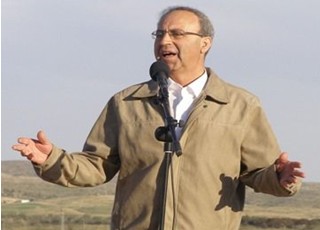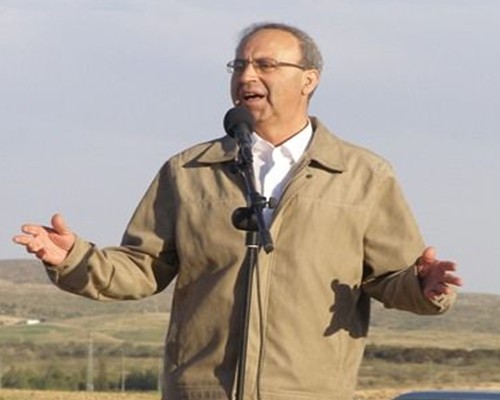
Development projects throughout Israel often get off to a slow start due to poor planning or various delays. In some localities, however, they seem to get nowhere at all – like in three villages clustered together in central Galilee. According to “Haaretz” newspaper construction plans for about 5,500 housing units in the villages, straddling Route 85 opposite Carmiel, are stuck due to what is termed “lack of a disposal solution” for local sewage. Majdal Krum has 2,000 planned units, Deir al-Asad has four planned developments totaling about the same number of units, and in Bina there are two developments planned for almost 1,500 dwellings.
Knesset member Dr. Hanna Swaid (Hadash) is familiar with the plight of Arab villages – and certainly not just these three. “This problem exists in 30 Arab communities in the Galilee,” he says. “The Northern District planning and building committee made a decision not to allow or promote plans to enlarge the communities as long as a disposal solution isn’t found: As long as there aren’t purification pools for receiving and treating wastewater – a subject not governed by municipalities.

MK Swaid during a rally at Al-Arakib village (Photo: Al Ittihad)
“The district committee claims current solutions are insufficient and that more sewage can’t be pumped into existing pools, so it cannot approve expansion plans and the building of new housing units,” he explains.
But this isn’t merely a case of neglect by the district committee, or a mess of red tape courtesy of the water corporations, local councils, the Interior Ministry and the Ministry of Energy and Water Resources: It also involves discrimination against Israel’s Arab-Palestinian population. Swaid emphasizes that the sewage collection problem somehow skipped the Jewish localities.
“Carmiel doesn’t have this problem, and neither do the Misgav settlements,” insists Swaid. “It’s a problem only for Arab communities. There is neglect and discrimination. Development of the communities and providing them with basic services doesn’t interest anyone. These projects should cost several millions of shekels, not a huge budget, and if it’s invested the wastewater treatment plant could be expanded and upgraded. That’s the bottleneck.
“The Jewish sector has a problem with prices. The Arab sector hasn’t any problem with prices, but people are forced to build without permits,” adds Swaid. “Building plans aren’t being approved, but the needs and demand erupt in the form of illegal construction. There is land – it’s just not zoned – but without any choice people build and endanger their futures. There are thousands of houses in Arab communities built without permits and demolition orders against them that can be carried out at any moment. The families pay thousands of shekels in fines. These houses also don’t provide any security.” Swaid estimates that 20,000 dwellings throughout the country are threatened with demolition.


